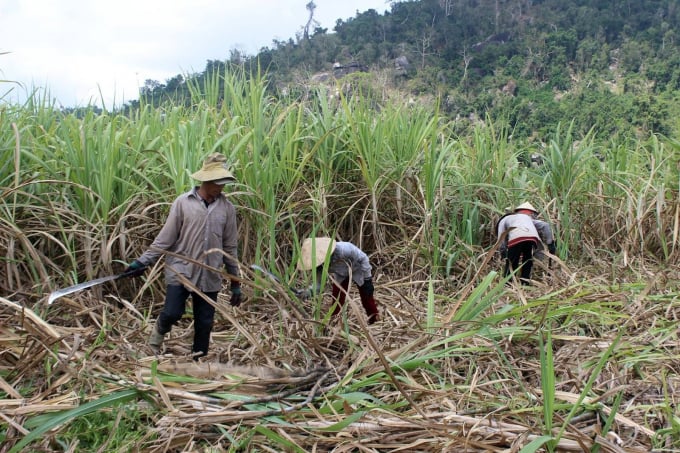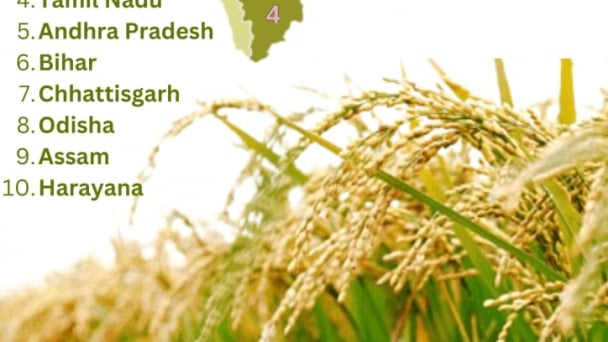June 20, 2025 | 01:09 GMT +7
June 20, 2025 | 01:09 GMT +7
Hotline: 0913.378.918
June 20, 2025 | 01:09 GMT +7
Hotline: 0913.378.918

Vietnam’s sugar industry has many signs of improvement in the 2021-2022 crop year. Photo: TS.
In recent years, Vietnam's sugarcane production industry has faced continuous difficulties. Many processing factories have had to close, suspend production, and farmers even cut down sugarcane to replace other crops. That is because planting sugarcane is not profitable, even loss, due to domestic sugar cannot compete with imported sugar.
According to Mr. Cao Anh Duong, Acting Chairman of the Vietnam Sugarcane and Sugar Association, Vietnam's sugar industry in the 2021-2022 crop year is forecasted to improve due to there is Decision No. 1578/QD-BCT on the application of official anti-dumping duties on sugarcane products originating from Thailand for five years.
In the 2021-2022 processing season, it is expected that there will be 24 sugar factories in operation, equal to the number of factories operating in the 2020-2021 crop, with a total design capacity of 122,200 tonnes of sugarcane per day.
The sugar factories' production plan for the crop year 2021-2022 is as follows: The harvested sugarcane area is over 148,000 hectares; processed sugarcane output is 8.6 million tonnes; yield is 66.5 tonnes per hectare; the average commercial cane sugar is 10.3 CCS; sugar output is over 873,000 tonnes.
However, according to data from the Agricultural Products Processing and Market Development Department, the sugarcane production plan in the provinces in the 2020-2021 crop year is as follows: The harvested area of sugarcane is over 157,000 hectares; yield is 65.1 tonnes per hectare; processed sugarcane output is over 10.2 million tonnes.
Although the above figures are different, in general, Vietnam's sugar industry has more improver than in the 2020-2021 crop year when the raw sugar cane harvested and processed is only 6.7 million tonnes, the sugar production sugarcane output is over 689,000 tonnes.

The increase in world sugar prices has helped farmers at a higher sugarcane price than in previous years. Photo: TS.
According to the Vietnam Sugar Association, based on the Prime Minister's Directive 28/CT-TTg dated July 14, 2020, Vietnam's sugar industry will perform some critical tasks in the 2021-2022 crop year subsequent years. In particular, essential solutions are strengthening the link chain, building a healthy sugar market, developing digital agriculture, etc.
The sugar industry needs to take appropriate measures to strengthen and develop the chain of production links, including transparency in sugar analysis (CCS) and assessing the impurities rate in sugar factories, creating farmers' trust in the sugar industry.
Build a system to share profits from sugar production between farmers and sugar mills appropriately.
Strengthen linkages among farmers, form cooperatives, concentrate sugarcane farms, apply new sugarcane varieties, and mechanize to reduce production costs.
In addition, the sugar industry needs to build a healthy and harmonious sugar market. Specifically, stabilizing sugar prices at a reasonably consistent level with consumers, not higher than the price of sugar imported from Thailand.
Stabilizing the sugarcane price ensures farmers have the same or higher income than the main competitive crop locally.
Moreover, the sugar industry needs to develop a strategy for developing Vietnam's sugarcane agriculture in the context of small farmer households, climate change, and the requirements of agriculture No. 4.0.
Sugarcane output and domestic sugar production have fallen to the lowest level in more than ten years. Still, the adversity is that the purchasing price of raw cane has not increased, even decreased deeply. Meanwhile, domestic demand for sugar always tends to increase. For example, in the 2017-2018, 2018 - 2019, and 2019 - 2020 crop years, the sugarcane prices were only from VND 700 to 750 thousand per tonne at the beginning of the season.
VSSA has just sent a document to the Vietnam Sugarcane and Sugar Association members recommending the purchase price of sugarcane for the 2021-2022 crop year.
Accordingly, the domestic sugar market will have a price level that fully reflects sugar production costs under fair competition conditions.
VSSA recommends that sugar mills consider with farmers soon to increase sugarcane prices for the upcoming new crop, ensuring income for farmers.
Raising sugarcane prices is a measure to strengthen and develop the linkage chain in sugarcane production and show the sharing and companionship with farmers after consecutive difficult sugarcane crops in the past period.
Translated by Ha Phuc

(VAN) Last week, the U.S. Department of Agriculture (USDA) released its June World Agricultural Supply and Demand Estimates (WASDE), raising projections for both Indian rice production and U.S. rice imports for the 2025/2026 marketing year.
/2025/06/17/2344-1-131758_261.jpg)
(VAN) Amid tariff risks and growing trade barriers in the U.S. market, Australia is emerging as a promising destination to sustain the growth momentum of Vietnam's shrimp exports.
/2025/06/17/2013-1-nongnghiep-112009.jpg)
(VAN) This notable growth trend reflects the global taste for fresh, nutritious fruits and the expanding use of lychees across various sectors.

(VAN) The political and cultural insulation of Japan’s beloved grain is falling apart, and experts warn the country’s relationship with the staple will have to adapt.

(VAN) Noting risks, report examines impacts of avian influenza, changing trade patterns since 2022, fish fraud, and shipping industry’s net-zero goals.

(VAN) Mr. Tran Quang Bao, General Director of the Forestry and Forest Protection Department, met and worked with the International Wood Products Association to promote cooperation in the field of timber trade.

(VAN) China's outbound shipments of rare earths in May jumped 23% on the month to their highest in a year, though Beijing's export curbs on some of the critical minerals halted some overseas sales.